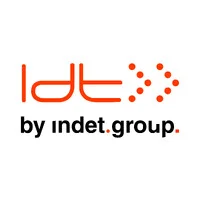
MLOps Engineer

Kyivstar
Summary
Join Kyivstar.Tech, a Ukrainian IT company, as an MLOps Engineer specializing in Large Language Model (LLM) infrastructure. You will design and maintain a robust platform for developing, deploying, and monitoring AI models, building scalable training pipelines and reliable deployment systems. This role blends software engineering, DevOps, and machine learning, accelerating R&D in a Ukrainian LLM project. Collaborate with data scientists and software engineers to implement best-in-class infrastructure and workflows for continuous AI innovation. You will be responsible for designing and implementing ML infrastructure, developing end-to-end model pipelines, and ensuring model performance and reliability. The position requires strong experience in DevOps, MLOps, cloud platforms, containerization, CI/CD, and programming. Kyivstar.Tech offers various benefits including remote work options, performance bonuses, training opportunities, health and life insurance, a wellbeing program, and mobile communication reimbursement.
Requirements
- Experience & Background: 4+ years of experience in DevOps, MLOps, or ML Infrastructure roles. Strong foundation in software engineering and DevOps principles as they apply to machine learning. Bachelor’s or Master’s in Computer Science, Engineering, or related field is preferred
- Cloud & Infrastructure: Extensive experience with cloud platforms (AWS, GCP, or Azure) and designing cloud-native applications for ML. Comfortable using cloud services for compute (EC2, GCP Compute, Azure VMs), storage (S3, Cloud Storage), container registry, and serverless components where appropriate. Experience managing infrastructure with Infrastructure-as-Code tools like Terraform or CloudFormation
- Containerization & Orchestration: Proficiency in container technologies (Docker) and orchestration with Kubernetes. Ability to deploy, scale, and manage complex applications on Kubernetes clusters; experience with tools like Helm for Kubernetes package management. Knowledge of container security and networking basics in distributed systems
- CI/CD & Automation: Strong experience implementing CI/CD pipelines for ML projects. Familiar with tools like Jenkins, GitLab CI, or GitHub Actions for automating testing and deployment of ML code and models. Experience with specialized ML CI/CD (e.g., TensorFlow Extended TFX, MLflow for model deployment) and GitOps workflows (Argo CD) is a plus
- Programming & Scripting: Strong coding skills in Python, with experience in writing pipelines or automation scripts related to ML tasks. Familiarity with shell scripting and one or more general-purpose languages (Go, Java, or C++) for infrastructure tooling. Ability to debug and optimize code for performance (both in data pipelines and in model inference code)
- ML Pipeline Knowledge: Solid understanding of the machine learning lifecycle and tools. Experience building or maintaining ML pipelines, possibly using frameworks like Kubeflow, Airflow, or custom solutions. Knowledge of model serving frameworks (TensorFlow Serving, TorchServe, NVIDIA Triton, or custom Flask/FastAPI servers for ML)
- Monitoring & Reliability: Experience setting up monitoring for applications and models (using Prometheus, Grafana, CloudWatch, or similar) and implementing alerting for anomalies. Understanding of model performance metrics and how to track them in production (e.g., accuracy on a validation stream, response latency). Familiarity with concepts of A/B testing or canary deployments for model updates in production
- Security & Compliance: Basic understanding of security best practices in ML deployments, including data encryption, access control, and dealing with sensitive data in compliance with regulations. Experience implementing authentication/authorization for model endpoints and ensuring infrastructure complies with organizational security policies
- Team Collaboration: Excellent collaboration skills to work with cross-functional teams. Experience interacting with data scientists to translate model requirements into scalable infrastructure. Strong documentation habits for outlining system designs, runbooks for operations, and lessons learned
Responsibilities
- Design and implement modern, scalable ML infrastructure (cloud-native or on-premises) to support both experimentation and production deployment of NLP/LLM models. This includes setting up systems for distributed model training (leveraging GPUs or TPUs across multiple nodes) and high-throughput model serving (APIs, microservices)
- Develop end-to-end pipelines for model training, validation, and deployment. Automate the ML workflow from data ingestion and feature processing to model training and evaluation, using technologies like Docker and CI/CD pipelines to ensure reproducibility and reliability
- Collaborate with Data Scientists and ML Engineers to design MLOps solutions that meet model performance and latency requirements. Architect deployment patterns (batch, real-time, streaming inference) appropriate for various use cases (e.g., a real-time chatbot vs. offline analysis)
- Implement and uphold best practices in MLOps, including automated testing of ML code, continuous integration/continuous deployment for model updates, and rigorous version control for code, data, and model artifacts. Ensure every model and dataset is properly versioned and reproducible
- Set up monitoring and alerting for deployed models and data pipelines. Use tools to track model performance (latency, throughput) and accuracy drift in production. Implement logging and observability frameworks to quickly detect anomalies or degradations in model outputs
- Manage and optimize our Kubernetes-based deployment environments. Containerize ML services and use orchestration (Kubernetes, Docker Swarm or similar) to scale model serving infrastructure. Handle cluster provisioning, health, and upgrades, possibly using Helm charts for managing LLM services
- Maintain infrastructure-as-code (e.g., Terraform, Ansible) for provisioning cloud resources and ML infrastructure, enabling reproducible and auditable changes to the environment. Ensure our infrastructure is scalable, cost-effective, and secure
- Perform code reviews and provide guidance to other engineers (both MLOps and ML developers) on building efficient and maintainable pipelines. Troubleshoot issues across the ML lifecycle, from data processing bottlenecks to model deployment failures, and continuously improve system robustnes
Preferred Qualifications
- LLM/AI Domain Experience: Previous experience deploying or fine-tuning large language models or other large-scale deep learning models in production. Knowledge of specialized optimizations for LLMs (such as model parallelism, quantization techniques like 8-bit or 4-bit quantization, and use of libraries like DeepSpeed or Hugging Face Accelerate for efficient training) will be highly regarded
- Distributed Computing: Experience with distributed computing frameworks such as Ray for scaling up model training across multiple nodes. Familiarity with big data processing (Spark, Hadoop) and streaming data (Kafka, Flink) to support feeding data into ML systems in real time
- Data Engineering Tools: Some experience with data pipeline and ETL. Knowledge of tools like Apache Airflow, Kafka, or dbt and how they integrate into ML pipelines. Understanding of data warehousing concepts (Snowflake, BigQuery) and how processed data is used for model training
- Versioning & Experiment Tracking: Experience with ML experiment tracking and model registry tools (e.g., MLflow, Weights & Biases, DVC). Ensuring that every model version and experiment is logged and reproducible for auditing and improvement cycles
- Vector Databases & Retrieval: Familiarity with vector databases (Pinecone, Weaviate, FAISS) and retrieval systems used in conjunction with LLMs for augmented generation is a plus
- High-Performance Computing: Exposure to HPC environments or on-prem GPU clusters for training large models. Understanding of how to maximize GPU utilization, manage job scheduling (with tools like Slurm or Kubernetes operators for ML), and profile model performance to remove bottlenecks
- Continuous Learning: Up-to-date with the latest developments in MLOps and LLMOps (Large Model Ops). Active interest in new tools or frameworks in the MLOps ecosystem (e.g., model optimization libraries, new orchestration tools) and a drive to evaluate and introduce them to improve our processes
Benefits
- Office or remote – it’s up to you. You can work from anywhere, and we will arrange your workplace
- Remote onboarding
- Performance bonuses for everyone (annual or quarterly — depends on the role)
- We train employees: with the opportunity to learn through the company’s library, internal resources, and programs from partners
- Health and life insurance
- Wellbeing program and corporate psychologist
- Reimbursement of expenses for Kyivstar mobile communication
Share this job:
Similar Remote Jobs








